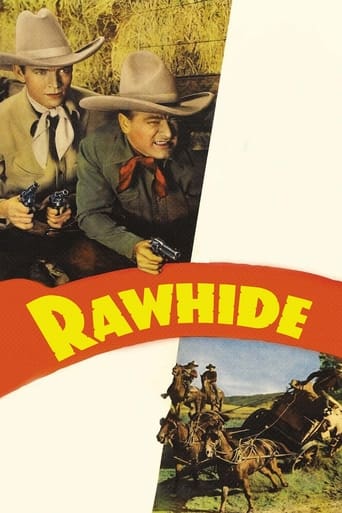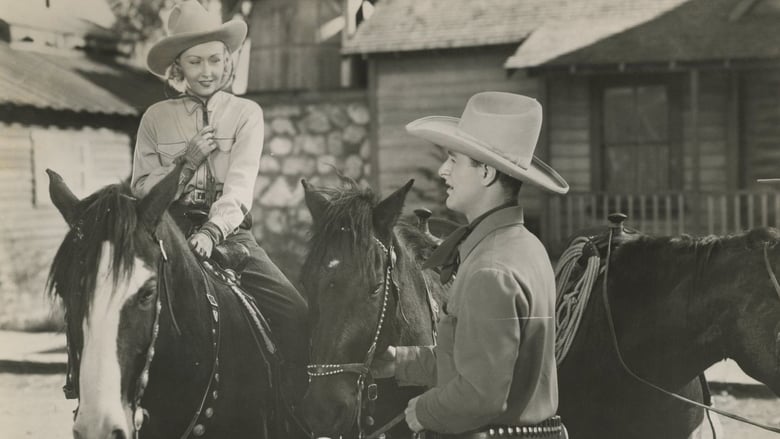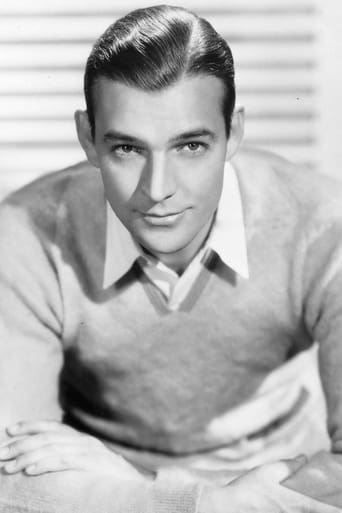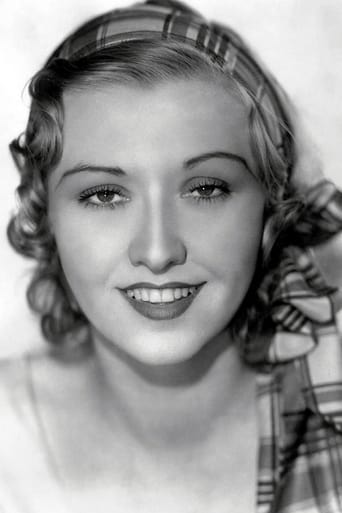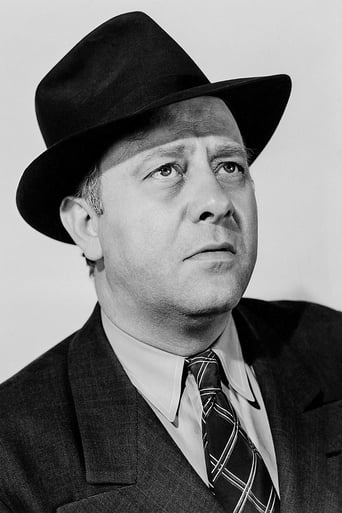Rawhide (1938)
Saunders with his Cattlemen's Protective Agency is running roughshod over the ranchers. Lawyer Larry Kimball is fighting him but he needs a rancher that will stand up with him against Saunders. He finds him when Lou Gehrig retires from baseball to take up ranching. Lou expects to relax on his ranch but quickly joins Larry in the fight.
Watch Trailer
Cast
Reviews
Good story, Not enough for a whole film
Best movie ever!
Absolutely Fantastic
This story has more twists and turns than a second-rate soap opera.
Copyright 8 April 1938 by Principal Productions, Inc. New York opening at the Globe: 24 April 1938. Released through 20th Century-Fox: 8 April 1938. Australian release: 16 June 1938. 6 reels. 59 minutes. SYNOPSIS: Baseball star buys a ranch.COMMENT: In his first and only Hollywood feature, baseball legend Lou Gehrig (later to be immortalized by Gary Cooper in Pride of the Yankees) understudies the now-forgotten Smith Ballew, a popular singer of the time, who made five "B" westerns for Fox (this is the fourth) in the late 1930s. Although Ballew displays a pleasant voice and personality in the main role, all eyes are on Gehrig in support. He handles himself with a professional finesse (all sports people are actors after all), exhibiting enough individual charisma to lend credence to the assumption that he would have successfully made the transition from sports star to popular character actor had he lived. Although he's allowed only two opportunities to show off his baseball prowess, it's hard to take a great deal of interest in the other players. True, Miss Knapp is an attractive enough heroine, whilst villain Loft does a lot of gabbing and henchman Curtis makes with the scowls. And it's good to see Cy Kendall as the crooked sheriff and Lafe McKee the upright McDonnell. But neither the other actors nor the play (routine in its plot but allowing for a fair amount of location action - some obviously stock) are the thing in this single-focused Rawhide.
A couple years before he died, Lou Gehrig (yes, THAT Lou Gehrig) co-starred in an amiable little western called "Rawhide". The title refers to the name of Gehrig's ranch---to which he's retiring. However, when he arrives he finds there is a 'protective association' that controls all the local ranches. What this actually turns out to be is a protection racket run by some mobsters. In other words, if you don't join, 'accidents' happen to your spread and you can't buy needed materials. However, Lou is tough and he and his new buddy (the crooner Smith Ballew) decide to fight instead of knuckling under to their bullying tactics. Much of the rest of the film is a battle of wills and fists between these men.The film had some very nice singing. Ballew had a very good voice and the lyrics were catchy. As for Gehrig, I am pretty sure his singing was dubbed. I also was surprised by his speaking voice, as it was 100% New York--and sounded nothing like Gary Cooper in "Pride of the Yankees". Because of this, it further accentuated the 'fish out of water' aspect of the film with this city boy taking up an odd new life as a rancher! It's all a bit surreal but also pleasant and worth seeing just for its curiosity factor.
Singing cowboy/crusading attorney Smith Ballew is looking for a brave cattleman to go up against the crooked Rancher's Protective Association, which has been shaking down local ranch owners. He finds what he's looking for in baseball star Lou Gehrig (!), who's quit baseball and along with his sister, bought a local spread.In all, this celebrity-driven production isn't half bad. It's a pleasant enough hour of entertainment, with some good action and an irresistible chance to see Gehrig at the height of his career, in his only acting gig. Evalyn Knapp, who play's his sister, is pretty cute too!As a Saturday matinée hero, the rough and tumble Gehrig is surprisingly good. One amusing scene has him taking out a pool hall full of bad guys by pitching billiard balls against their heads and another has Lou belting out a (lip-synched?) cowboy song with Ballew, while riding the trail!
Lou Gehrig was one of American major league baseball's greatest players. Check out his statistics on the Internet. His farewell speech at Yankee Stadium, given two years before his death to what we now call "Lou Gehrig's Disease" (ALS), was ranked the Number One Moment in Sports by fans during the 2008 All-Star Game. He wasn't just one of the baseball immortals, but unlike Ty Cobb or Babe Ruth, he had an extremely winning personality. For any fan of baseball, we are lucky to see that personality preserved for posterity in this film.The movie is really a Smith Ballew (who?) Western. Although Ballew starred in eleven Westerns, he was originally a band leader and jazz singer of the twenties and thirties (discovered by Tommy Dorsey no less!) He became one of the first singing cowboys; therefore, this one has a lot of singing. We get two 'comic' cowboy songs sung by him, one of which has the famous pop singer of the forties, Buddy Clark, singing for Lou Gehrig. Ballew's spotlighted ballad, "Driftin'," was written by Albert von Tilzer, composer of "Take Me Out to the Ballgame," and "I'll Be With You in Appple Blossom Time." Beside this fine number, we get a country swing band doing a short version of "That Old Washboard Band," written and performed by Willie and Norman Phelps, who also do "Texas Washboard Rag" (which they also wrote) in Tex Ritter's 'Hittin' the Trail' (1937). For those who may not know, the washboard, augmented with copper pots and a bicycle horn, was a staple of Western movie bands. It was Spike Jones in the forties who elevated the augmented washboard to orchestral instrument status.Other credits for this film are equally impressive. Ray Taylor, who directed so many famous serials was the director. Among his many outstanding serials are 'The Return of Chandu' (1934), 'Flash Gordon,' (1936), 'Flash Gordon Conquers the Universe' (1940) and 'The Perils of Pauline' (1933), which starred Evalyn Knapp, who is featured in this movie as the heroine, though she gets little to do here. 'The Perils of Pauline' is especially noteworthy because it appears to take place at locations all over the world. In this movie we also get Dick Curtis, veteran of over 230 movies and TV shows (mostly as a villain), the ever present Lafe McKee, and the plump Cy Kendall as the dishonest sheriff.Then there's Lou Gehrig himself. Unlike other athletes who appeared in films, he is neither wooden, unemotional or out of place. One reviewer here described him as 'almost giddy' in his performance. I think, however, we have him in all his naturalness as a person, playing the role of a cowboy, with his smiling, dimpled, good natured sincerity. We see him throw billiard balls in a bar fight, and smash a window with a rock hit by a bat. He was left handed! He certainly does get a little giddy when he is called back for spring training at the end.The film's story is promising. In Rawhide, Montana, Saunders, an evil businessman, (in these thirties depression era movies what other kind is there?) is running a protection racket, forcing all the ranchers to join the "Ranchers' Protective Association," or face the consequences. Good natured Lou, going to live on his sister's ranch to find "peace and quiet," gets thrown into the middle of this conflict. With only the good town lawyer (Smith Ballew) to help him, Lou finds the odds heavily stacked against him in his defiance of the evil Saunders, and early attempts to circumvent Saunders' power and control are met with failure.Is the film fun to watch? Yes. We get some snappy dialog like, "You boys are carrying things with a pretty high hat," and "If you lie down with dogs, you get up with fleas." When Lou first sees his new home in Montana, he jubilates, "Boy! What a Ritz!" When Smith tells Lou that if he's going to stand up against Saunders, he'll have to stick it through, Lou replies enthusiastically, " Why I'm Old Man Stick It Through myself!" Prophetic, but true to Lou Gehrig's nature.Unfortunately, the defeat of the racketeers and the resolution of the conflict are too quickly and easily handled. After Smith rouses all the ranchers against him (in a fast forty seconds), Saunders declares "We've got to get out of town!" and the final horseback chase sequence takes place. Just like that. Smith's knockout punch to Saunders, and we're off to the happy ending. The rapid resolution detracts from the impact of the story's development, and weakens the film considerably.Still, I have to give it a five and a half for its other wonderful elements, especially preserving Lou Gehrig's enthusiastic presence.
